 How to find light when darkness is around us, and how do we turn to loved ones to get comfort?
How to find light when darkness is around us, and how do we turn to loved ones to get comfort?
Lately in my practice I have been noticing, that as the beauty of Fall gives way to the dark of Winter, as the days get shorter and the temperatures drop, that for some, when this seasonal change begins, it comes with a sense of foreboding. It could be as serious as S.A.D (seasonal affect disorder)— for some, it is just the melancholia of winter, or the stress of the holidays.
To add to this seasonal stress we have all been experiencing, there are the anxieties and fears spread by violent and harmful events in our country and in the world. It is at times of such collective stress that we are left feeling vulnerable and alone. In the face of all the latest disturbing events, during this holiday season, we may find ourselves needing to connect with each other even more strongly.
 We are realizing that the world is getting smaller, that we are all connected, and that we need to rely and depend on each other. Community, family, relationships, and tribal connection are in our DNA and though some of us may be living in tribes of 1 or 2, reaching out to others becomes ever-so important! It is in those times of stress and of celebration that creating and maintaining our secure attachment connections becomes paramount. In my practice, this time of year, I find that families and couples are struggling to find that secure bond.
We are realizing that the world is getting smaller, that we are all connected, and that we need to rely and depend on each other. Community, family, relationships, and tribal connection are in our DNA and though some of us may be living in tribes of 1 or 2, reaching out to others becomes ever-so important! It is in those times of stress and of celebration that creating and maintaining our secure attachment connections becomes paramount. In my practice, this time of year, I find that families and couples are struggling to find that secure bond.
Holidays celebrations bring people together; families, tribes, communities and friends at times go on long journeys to connect with loved ones during the Holidays. We naturally turn to each other, to our people, to get comfort and connection and to ward off the hard times because we know that being in touch with those we love is reassuring.
 Few months present the multicultural celebrations that December does! Whether you celebrate Christmas, St Nicholas Day, Kwanzaa, Hanukkah, Solstice, Diwali, Kwanzaa, St. Lucia, Eid al-Fitr, Boxing Day, Saturnalia, Three Kings Day… or any other holiday this month, chances are that it is celebrated with LIGHTS.
Few months present the multicultural celebrations that December does! Whether you celebrate Christmas, St Nicholas Day, Kwanzaa, Hanukkah, Solstice, Diwali, Kwanzaa, St. Lucia, Eid al-Fitr, Boxing Day, Saturnalia, Three Kings Day… or any other holiday this month, chances are that it is celebrated with LIGHTS.
The Winter Solstice occurs on either December 20, 21, 22, or 23 in the Northern Hemisphere, where it is the shortest day of the year. People all over the world participate with festivals and celebrations. Long ago, people celebrated by lighting bonfires and candles to coax back the sun. At times of darkness and cold weather, we try to bring in lights and warmth.
 Traditions of sitting around the fire, with lights, decorations, music, special foods and feasts, abound. Here in the US, our celebrations include giving gifts, parties, and family get-togethers, which can be wonderful and/or stressful.
Traditions of sitting around the fire, with lights, decorations, music, special foods and feasts, abound. Here in the US, our celebrations include giving gifts, parties, and family get-togethers, which can be wonderful and/or stressful.
Here are some tips to watch for, prevent, and cope with, holiday stress:
1. Be realistic. The holidays don’t have to be PERFECT or ‘just like last year’.. Allow for change and flexibility. As families change and grow, traditions and rituals often change as well.
2. Stick to a BUDGET. Before you go gift and food shopping, decide how much money you can afford to spend. Then stick to your budget. Often we feel the need to spend money to show our love. But many times presence comes before presents. And baking cookies or fudge can be economical yummy and fun!!
3. Plan ahead. Set aside specific days for shopping, baking, visiting friends and other activities. Plan your menus, make your shopping list, know how much time it takes to accomplish what you hope for, and take into account that everything takes longer during the holidays, including traffic!
4. Acknowledge your feelings. If you or someone you close to, has recently experienced a loss, or can’t be with loved ones, realize that it’s normal to feel sadness and grief. It’s OK to take time to cry or express your feelings. Be honest. Express your needs. Reach out. If you feel lonely or isolated, seek out community, religious or other social events. They can offer support and companionship.
5. Learn to say no. Saying yes when you should say no can leave you feeling resentful and overwhelmed. Friends and colleagues will understand if you can’t participate in every project or activity. So often we overextend ourselves only to feel spent exhausted and depleted. Set clear boundaries even with family and friends.
6. Make sure to take some time for yourself. Spending just 15 minutes alone, without distractions, may refresh you enough to handle everything you need to do. Don’t neglect your daily practice of exercising, yoga, or meditation.
7. Take time to do NOTHING AT ALL!!!
 So with some practical tips, paying attention, and following some of the above, you can minimize the stress of the holidays. You may even end up enjoying the holidays more than you thought you would.
So with some practical tips, paying attention, and following some of the above, you can minimize the stress of the holidays. You may even end up enjoying the holidays more than you thought you would.
Please join me and Susan Schreiber on the Women’s Show next monday December 14th at 8pm on KVMR.org where we will be discussing Holiday Stress and How to Cope. Listen in at http://KVMR.org or for the Nevada City, area listen live at 89.5FM on the radio.
~ Please write any comments or questions you may have below.
Thank you.
~ Dalia Anderman, MFT ~

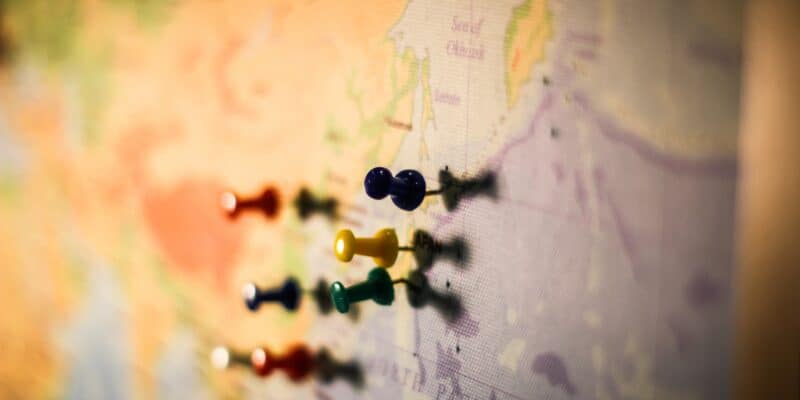
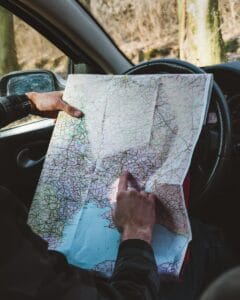 ‘Long time ago’ when we traveled we use to use
‘Long time ago’ when we traveled we use to use 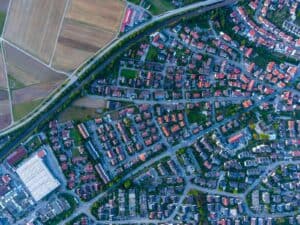 Having a map can be useful and important. It helps to know these three places on the map of our lives: Where am I? Where to I want to go? How do I get there?
Having a map can be useful and important. It helps to know these three places on the map of our lives: Where am I? Where to I want to go? How do I get there? At times it’s all about seeing the same landscapes with new eyes.
At times it’s all about seeing the same landscapes with new eyes.
 One of the reasons I love traveling so much is that time stretches. It’s like being in a time machine, living as if time slows down. So much gets packed in a day. It feels like forever. It’s hard to believe it’s only been two weeks since I left town to go visit my daughter in London (with an added bonus of visiting friends in Paris).
One of the reasons I love traveling so much is that time stretches. It’s like being in a time machine, living as if time slows down. So much gets packed in a day. It feels like forever. It’s hard to believe it’s only been two weeks since I left town to go visit my daughter in London (with an added bonus of visiting friends in Paris).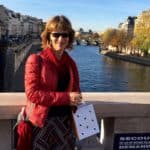 can be scary at times.
can be scary at times.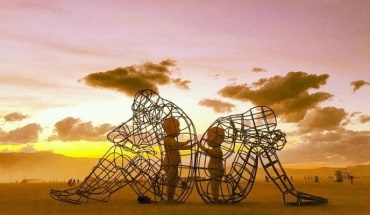
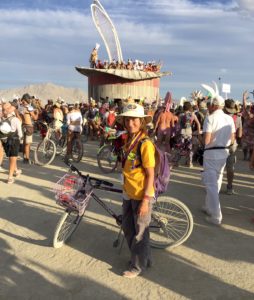 We provide mental health services to deal with anything from ‘home sickness’ to ‘drug over dose’, to sexual assault and domestic violence.
We provide mental health services to deal with anything from ‘home sickness’ to ‘drug over dose’, to sexual assault and domestic violence.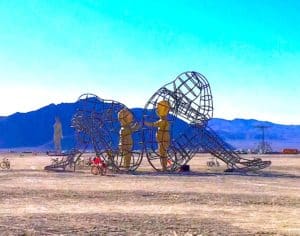 This art installation piece called
This art installation piece called  When we are in conflict with our loved one, we turn away from each other in panic, hurt, rage, anger, and pain. We do not know how to reach out and be vulnerable with each other, BUT the ‘inner self’, that part of us that is longing for the connection, does….
When we are in conflict with our loved one, we turn away from each other in panic, hurt, rage, anger, and pain. We do not know how to reach out and be vulnerable with each other, BUT the ‘inner self’, that part of us that is longing for the connection, does….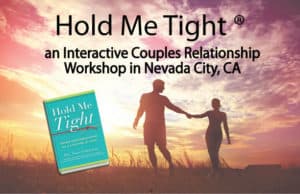 I am always touched and inspired by the risk and the willingness to ‘take the elevator’ and go into ‘raw spots’, talk about fears, pains, and hurts, move into forgiveness and ask for needs in a way that calls partners in rather then pushes them away. I’m always amazed to be in the presence of and hold space for couples who are moving out of and turning around those metal cages and being open and willing to become those illuminated inner figures in the sculpture of ‘LOVE.’
I am always touched and inspired by the risk and the willingness to ‘take the elevator’ and go into ‘raw spots’, talk about fears, pains, and hurts, move into forgiveness and ask for needs in a way that calls partners in rather then pushes them away. I’m always amazed to be in the presence of and hold space for couples who are moving out of and turning around those metal cages and being open and willing to become those illuminated inner figures in the sculpture of ‘LOVE.’ In these days of uncertainties, with stress over the fires, the drought, mass shootings, and other dangers, local and global, it is more important than ever that we reach out to our loved one/s, to the ‘other’ that we feel #securely #attached to.
In these days of uncertainties, with stress over the fires, the drought, mass shootings, and other dangers, local and global, it is more important than ever that we reach out to our loved one/s, to the ‘other’ that we feel #securely #attached to. Yes. We are mammals and we are wired for connection! When connection is threatened, we feel the primal panic that sends us into a fight-flight danger response. In our important relations it may look like fights – conflicts – protests for connection. We find comfort and strength in the bond with our loved ones. When that bond is questioned, when the bond is in distress, our sense of safety gets triggered, our
Yes. We are mammals and we are wired for connection! When connection is threatened, we feel the primal panic that sends us into a fight-flight danger response. In our important relations it may look like fights – conflicts – protests for connection. We find comfort and strength in the bond with our loved ones. When that bond is questioned, when the bond is in distress, our sense of safety gets triggered, our 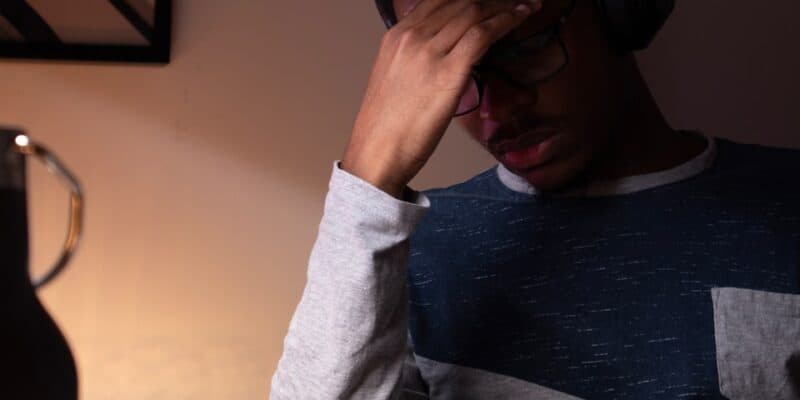
 In my Twenty+ years of marriage, I used to have endless conflicts with my then-husband about him not talking, not sharing emotions, not being as verbal as I wanted him to be. A caring, compassionate, soft-spoken quiet man, I would take his quietness personally, and would protest it endlessly.
In my Twenty+ years of marriage, I used to have endless conflicts with my then-husband about him not talking, not sharing emotions, not being as verbal as I wanted him to be. A caring, compassionate, soft-spoken quiet man, I would take his quietness personally, and would protest it endlessly. “I cannot do it right by her” he tells me. “I try to be emotional but then she thinks I am weak” he says, or “I hide my emotions and try to be reasonable but then she feels I am avoiding the issues and then when I do finally show anger (which is an emotion), she gets angry back.” And then he says, “I cannot win this,” and sighs, and then we give up, or resign, or withdraw or whatever we do (men and women) when we feel hopeless and helpless.
“I cannot do it right by her” he tells me. “I try to be emotional but then she thinks I am weak” he says, or “I hide my emotions and try to be reasonable but then she feels I am avoiding the issues and then when I do finally show anger (which is an emotion), she gets angry back.” And then he says, “I cannot win this,” and sighs, and then we give up, or resign, or withdraw or whatever we do (men and women) when we feel hopeless and helpless. One of the aspects we explore in my
One of the aspects we explore in my  In his book
In his book 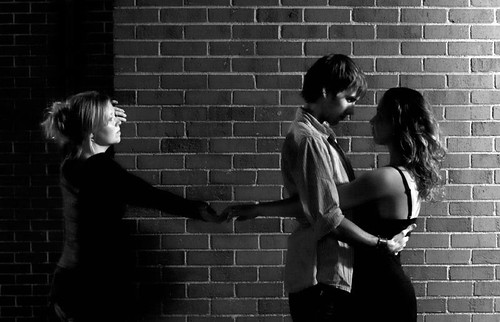

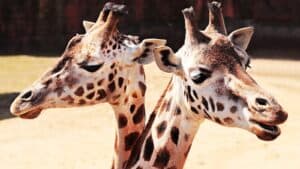 The second and most potent argument for monogamy claims Dr. Johnson, is that we are wired for it! A huge part of our brain is designed not just for social group interaction but for the intimate synchrony of emotional connection and bonding. The pacing, the give and take, the tuning in, the adapting to the others emotional cues between parents and infants and between adult lovers, are all about bonding. The main message of the new science of adult bonding is that the instinct to reach, connect and rely on loved ones is primary, more fundamental even than sex. Monogamous mammals like us have special cuddle hormones like oxytocin or OT – the so called molecule of monogamy. It turns off stress hormones, turns on reward centers, and fills us with calm contentment and well-being.
The second and most potent argument for monogamy claims Dr. Johnson, is that we are wired for it! A huge part of our brain is designed not just for social group interaction but for the intimate synchrony of emotional connection and bonding. The pacing, the give and take, the tuning in, the adapting to the others emotional cues between parents and infants and between adult lovers, are all about bonding. The main message of the new science of adult bonding is that the instinct to reach, connect and rely on loved ones is primary, more fundamental even than sex. Monogamous mammals like us have special cuddle hormones like oxytocin or OT – the so called molecule of monogamy. It turns off stress hormones, turns on reward centers, and fills us with calm contentment and well-being. Many new models of relationships have been developing to cope and solve some of those issues. In polyamory, the most fundamental element is that of rejecting the monogamous standard, and radically rethinking how you understand, make meaning of and practice love, sex, relationships, commitment, communication, and so forth. I have experienced the surge of the polyamory community, where a complex arrangement where an ‘alpha’ bond, (many times a marriage), is interlaced with other partners, whilst each of the couples is aware, open, and honest about it. At times that includes co-habitation, sharing of house chores, finances, and children, creating rules and regulations and making adjustment as they go. Sounds complex, but those who have been practicing it, swear by it’s amazing power to strengthen the bond between the complex lovers relationships. Others, not less challenging, have chosen the “open relationship” model, at times choosing a “don’t ask – don’t tell” policy and at times employing full disclosure and rules.
Many new models of relationships have been developing to cope and solve some of those issues. In polyamory, the most fundamental element is that of rejecting the monogamous standard, and radically rethinking how you understand, make meaning of and practice love, sex, relationships, commitment, communication, and so forth. I have experienced the surge of the polyamory community, where a complex arrangement where an ‘alpha’ bond, (many times a marriage), is interlaced with other partners, whilst each of the couples is aware, open, and honest about it. At times that includes co-habitation, sharing of house chores, finances, and children, creating rules and regulations and making adjustment as they go. Sounds complex, but those who have been practicing it, swear by it’s amazing power to strengthen the bond between the complex lovers relationships. Others, not less challenging, have chosen the “open relationship” model, at times choosing a “don’t ask – don’t tell” policy and at times employing full disclosure and rules. At times, when there is a lot of openness, care, disclosure, and work to re-establish trust and secure bonding, the end result can be that the couple repair their broken relationship; and though the original relationship had to die first, a phoenix can come out of the ashes. But again, not without a lot of
At times, when there is a lot of openness, care, disclosure, and work to re-establish trust and secure bonding, the end result can be that the couple repair their broken relationship; and though the original relationship had to die first, a phoenix can come out of the ashes. But again, not without a lot of